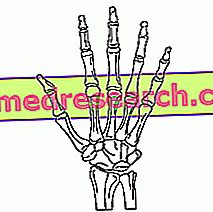by Fabìola Marelli
It is at the age of ten that I consciously realize that my hands are not skilled if I ask them to perform certain tasks that are required of me.
Yes, of course, even in previous years I had noticed that in helping my mother in the kitchen or making the bed I was clearly outclassed by my sister three years younger, both in time and in precision, but everyone affectionately nicknamed me "the princess ", so I myself had relegated myself to that castle where doing or not doing was equally important.

Those two hours become my nightmare: I struggle to sew, embroider, crochet and use knitting needles to knit.
The six of the promotion I get exclusively by exhaustion of the teacher, who surrenders in front of an educated but clumsy preadolescent.
My thanks is to opt for Latin in the following two years, making prof. a happy person.
Fifteen years pass before the "problem" re-emerges in a ruthlessly evident way during the construction of what will become my home, where my contribution as helper / laborer - almost nil - soon makes me gain on the field the little honorable name of "fistùn de verza" (Lombard dialectal definition that means "good for nothing").
The tools slip out of my hand or I can't grasp them with precision; the handle is wrong, I use force badly, I proceed at inadequate speed.
We are witnessing a real waste of energy that is found in the excessive stiffening of some parts of the body that are not involved in the movement.
This difficulty in sectorialisation of movement (dissociation) is often compensated for by the excessive use of muscular force: replacing force with precision is in fact a compensatory strategy common to people defined as "clumsy", even if almost always inadequate .
...
The more the activities are automatic and monotonous, the more my motor incoordination increases.
I always have to think about how to do it but also why I really have to do it ... since I never had (in the past and still today) interest in that kind of activity like bricolage.
The balance and coordination of each movement, from the most global to the finest, and their adjustment to the characteristics of the object and its exact location, are the results of a tonic-muscular activity that varies continuously according to the change in the relations between body forces and those of the external world.
In order to be able to control movements, the motor systems must select an option among the many possibilities existing for the same movement, that is, for its different degrees of freedom .
For example, in the action of grasping an object placed on a table top we can mobilize, using different osteopathic techniques, the various articulations of shoulder, elbow, wrist.
The motor system acts by reducing the number of choices through a "compaction" of the degrees of freedom, belonging to the muscle groups involved in the same movement.
The degrees of freedom to be controlled are those of the movement as a whole and not those of each muscle acting on each joint.
This highly selective compaction capacity allows an adjustment of the motor action to the sometimes very nuanced characteristics of the environmental context in which it takes place, such as the distance between itself and the object to be grasped, its structural characteristics, its speed with which is necessary to perform the gestures.
...
Anger. Impotence. Suffering.
I have had and still have real, objective difficulties when confronted with practical life.
Difficulties that should not be underestimated, just as the feeling of inferiority and frustration that comes over me when I do not feel understood or, worse, mocked ... and that could transform a polite and kind person into a devastating bomb should not be underestimated. unexploded.
The elegance in the movements is generally induced by some emotional states and / or by circumstances such as haste, anger, anxiety, shyness, fear ... to which one reacts by losing one's balance, trembling, moving in spurts or heavily "like an elephant in a porcelain shop".
Second part "



